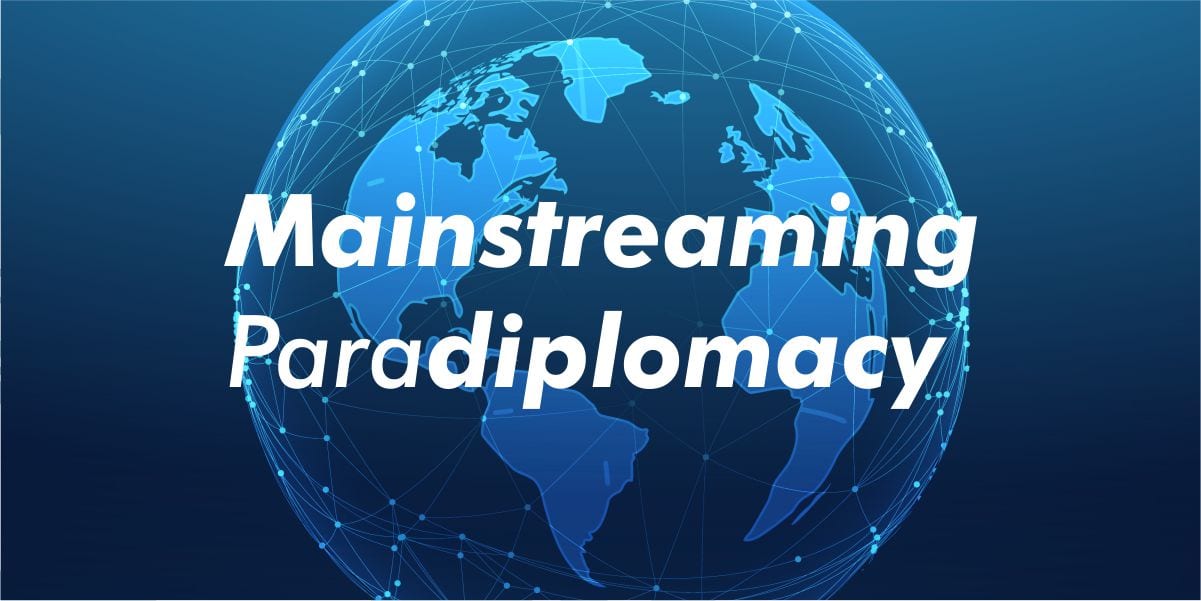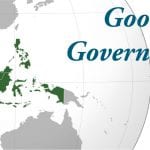ASEAN After 50: Mainstreaming Paradiplomacy in ASEAN
Ario Bimo Utomo
During the last few decades, sub-state entities have been rising to prominence due to the increasing level of globalization. Anthony Giddens argues that this phenomenon is caused by two colliding forces of globalization, namely the upward force and the downward force. The upward force, as Giddens describes, is a force which diminishes the traditional state boundaries by creating an increasing interconnectedness among states.
On the other hand, the downward force of globalization is a force which encourages local entities to realize their own positions in this increasingly connected world—forcing states to provide them with channels to express their own interests. The involvement of sub-state entities in the foreign affairs is known as paradiplomacy.
Paradiplomacy, an abbreviation of “parallel diplomacy”, is a concept which depicts the ability of sub-state entities (cities, provinces, autonomous regions) to engage in international affairs with their foreign counterparts. Andre Lecours states that paradiplomacy can be conducted within three different scopes: (1) economic, (2) cultural, and (3) political. Intuitively, paradiplomacy is possible to enhance the quality of democracy as it makes policies less elitist by putting the decision-making authority closer to the people.
Paradiplomacy constitutes one prominent issue in this 50 years anniversary of ASEAN. However, we can examine that paradiplomacy is relatively unknown in most scholarships about the organization. We may notice that states are still positioned as the most prominent actors. Since its inception in 1967, ASEAN has been popular for having its own unique principles which essentially champions state-centric norms such as non-interference and respect for sovereignty—a set of principles which is dearly called as the ASEAN Way. This stance has sparked debates regarding its relevance in this increasingly-interconnected world.
It is difficult to envisage a diplomatic mechanism which positions sub-state entities as other actors in alternative discourses about ASEAN. Therefore, it leads us to our main question: can ASEAN—with its ASEAN Way—embrace paradiplomacy?
ASEAN Environmentally Sustainable Cities
The organization, however, does not stipulate explicitly how sub-state engagement can be conducted. In the ASEAN Charter, yet, the organization has already outlined a vision that ASEAN shall be a “people-oriented” society which everyone can benefit from its integration (Point 13 of the Article 1). Through the Blueprint of the ASEAN Socio-Cultural Community, ASEAN has also indicated its commitment to building a more “inclusive, sustainable, resilient, and dynamic” community.
Those factors indicate that sub-state engagements are not impossible to be done within the current ASEAN framework.
As a matter of fact, it is incorrect to say that the paradiplomatic activity is completely unknown to this organization. Despite its essential focus in state-to-state relations, the organization has already got a platform which paved a road for sub-state entities to be positioned as actors. In this case, we can pick an example from a program called the ASEAN Environmentally Sustainable Cities.
During 2009-2015, the ASEAN Environmentally Sustainable Cities was intended to be a part of the wider ASEAN Socio-cultural Community Blueprint. According to the ASEAN official website, the program is a manifestation of ASEAN’s mission to promote a quality living standard in urban areas. Thereby, this program aimed to ensure that “cities/urban areas in ASEAN are environmentally sustainable while meeting the social and economic needs of the people”. The program involved 25 cities from the different 10 ASEAN member states. The cities picked are described as “smaller and rapidly-growing” urban areas.
Within this program, there are some activities such as the High-Level Seminar (HLS) on the Environmentally Sustainable Cities, ASEAN Model Cities Program, and the ASEAN Environmentally Sustainable Cities Award. The two latter examples were utilized as an incentive as well as benchmarking measures for the respective cities to develop.
As Southeast Asia is a home to the increasingly-urbanizing 580 million people, it is understandable that ASEAN puts a bigger emphasis on cities. The increasing role of urban areas as the bridge between the regional aspirations and the grassroots level, consequently, cannot be ignored.
In a bigger picture, cities have a significant role in localizing international goals such as the Sustainable Development Goals (SDGs) stipulated by the United Nations. Such efforts are harder to attain when the states cannot accurately translate the needs of their smaller constituent units.
Sub-state engagements can be done without necessarily breaching the core ASEAN principle which upholds sovereignty. With the lack of ASEAN awareness remains a haunting problem in realizing a Southeast Asian socio-cultural community, paradiplomacy offers a channel which connects people with the organization. In this case, the ASEAN Way should not be perceived as a stumbling block.
In contrast, the core ASEAN principles can be a common identity which brings a special colour toward the ASEAN paradiplomacy, enabling the parties to realize their shared identity and to achieve their collective interests in a peaceful manner.
Fifty years since its establishment, ASEAN has shown its progress as a dynamic and forward-looking regional organization. However, it also signifies that ASEAN still has more to offer in responding to the modern diplomatic trends. In this case, paradiplomacy can be a solution. Mainstreaming paradiplomacy can be a future investment for the organization to stay relevant with the needs of its heterogeneous constituents.
This can be done by creating new programs which give more portions to the local entities to participate. Member states, on the other hand, should also be committed to encouraging its sub-state units to stay on track with the regional vision in creating an inclusive community through an extensive public diplomacy.
*) Ario Bimo Utomo is a former research assistant at the ASEAN Studies Center UGM. He earned his master’s degree in International Relations from the University of Sydney, Australia.




